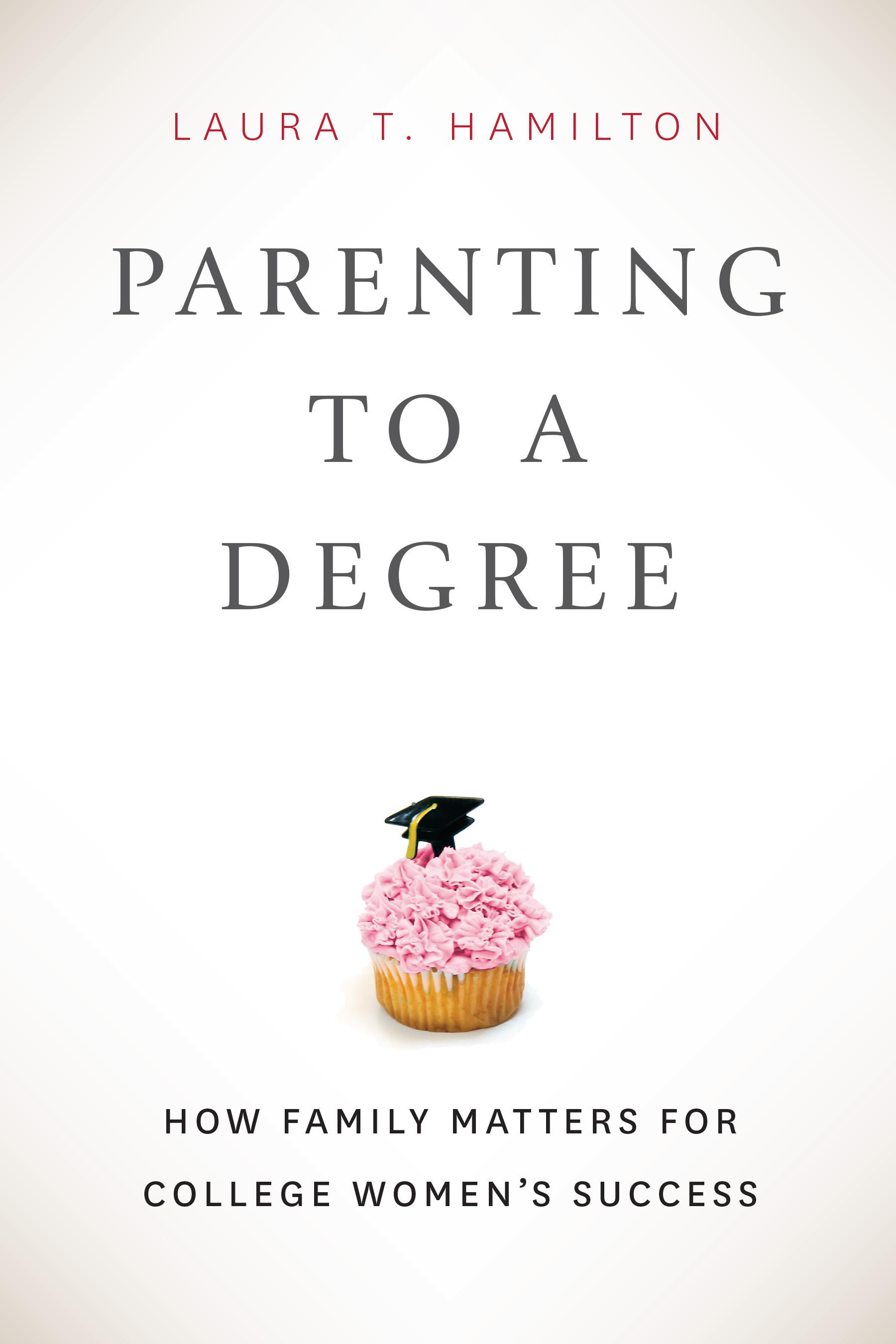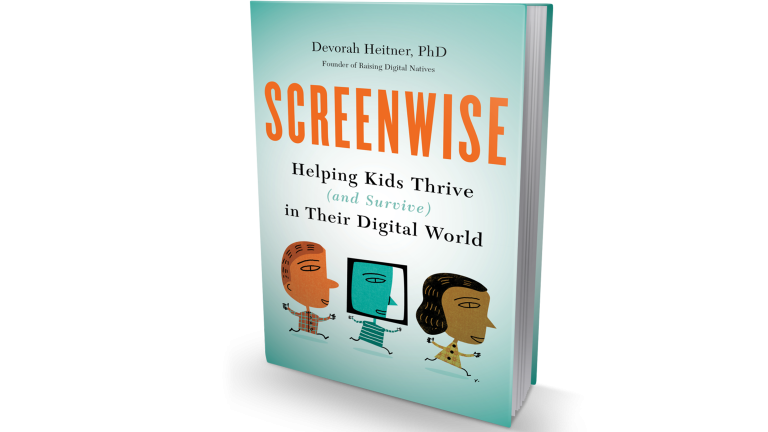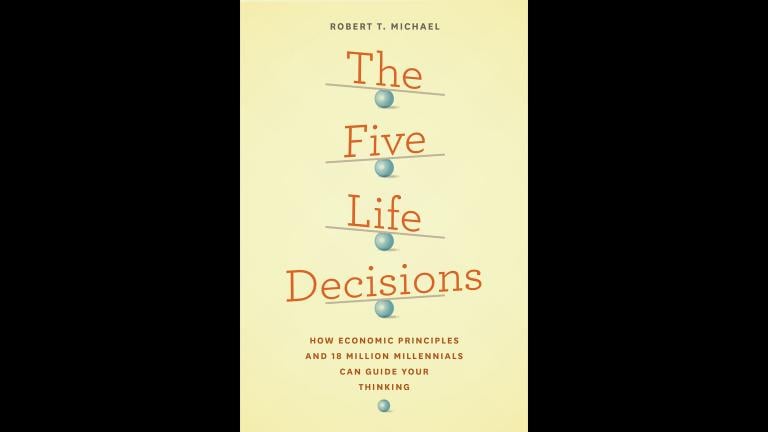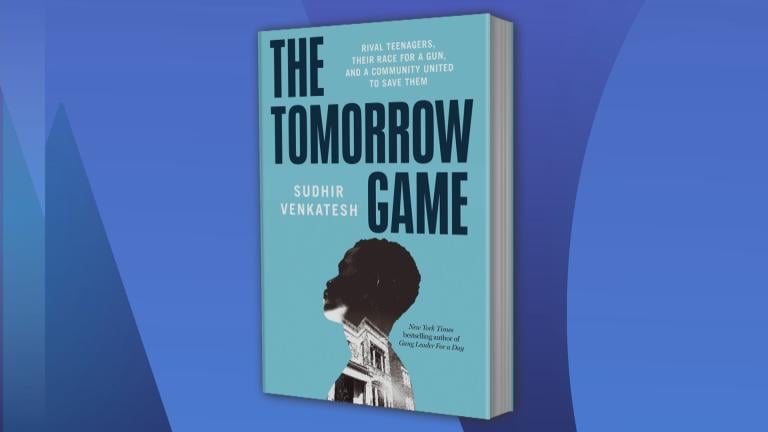As the cost of college increases alongside the number of college applications – up 6 percent in fall 2015 over the prior year, according to the National Association for College Admissions Counseling – parents are becoming more important to their children’s college success than ever before.
Indiana native Laura T. Hamilton, a sociologist at the University of California Merced, examines how parents and parenting styles can impact college women’s success in her new book, “Parenting to a Degree, How Family Matters for College Women’s Success.”
We’ve all heard the disparaging labels given to overly involved parents, including tiger moms and helicopter parents. But Hamilton argues that navigating college years can be very difficult without the help of supportive parents. As a result, students from working-class families, where parents have neither the time nor resources to be as involved, can be at a serious disadvantage, reproducing the country’s already existing class inequalities.
“People like to blame overly involved parents, yet they’re responding quite rationally to economic and social conditions,” said Hamilton. “College has become more competitive, more expensive and then upon graduation there’s more economic instability.”
For her book, Hamilton interviewed 41 families at a large flagship public university in the Midwest, which she refers to under the pseudonym Midwest University. She divides their parenting styles into four categories:
- Professional Helicopters: those who carefully orchestrate their daughters’ academic and career decisions.
- Pink Helicopters: parents who invest their energy and resources largely into their daughters’ social successes, mainly in hopes that it will increase their chances of finding a successful marriage partner.
- Paramedics: parents who value their daughters’ independence, but will intervene when things go wrong.
- Bystanders: parents with minimal involvement, normally from lower-middle and working class backgrounds.
“Ideally, the paramedic style of parenting is best,” said Hamilton. “However, those parents are taking a risk that their child could make a bad decision and that they’ll be unable to intervene to correct the situation. Paramedic-style parents are counting on their kids being mature enough to make wise decisions. Given how expensive and competitive college is, some parents just aren’t willing to take that risk. College tuition is just too big of an investment for them.”
Hamilton proposes a few solutions that could level the playing field for students entering college from lower-income and working class families. First, Hamilton argues the college ranking system needs to be adjusted so that working-class families can judge whether a certain university is a good investment for them.
“U.S. News & World Report’s ranking system is the one everyone turns to, yet it doesn’t really take into consideration how well lower income, middle class or first generation college students are being served,” said Hamilton. “Examples of new categories that could be plugged into the ranking data are the percent of Pell Grant recipients who graduate, or the percent of low income students who graduate.”
Another solution Hamilton proposes is a re-examination of how college is paid for in the U.S., something that’s played a major role in the 2016 presidential campaign. Democratic presidential candidates Bernie Sanders and Hillary Clinton have both made free college tuition and debt-free college part of their platform.
Below, an excerpt from “Parenting to a Degree: How Parenting Matters for College Women’s Success.”
![]()
Introduction
It was move-in day at Midwest University.1 A line of standstill traffic stretched a mile past a cluster of dormitories. Observing the vehicular chaos, I thanked my friend for the ride and went in on foot. Police were telling frustrated parents who parked illegally to move their vehicles. Dumpsters were overflowing with boxes no one had bothered to break down. I nearly collided with a father carting cases of weight-loss shakes for a slender woman, who was overdressed for moving in a ruffle skirt and tall heels.
Inside, I was acutely aware ofmy status as a researcher. In reality, I was nearly invisible. Mothers buzzed around me in navigator mode—locating food, classes, laundry, and mail. They drew maps and traced out paths on brochures. A mother was on her cell phone asking about the shuttle schedule so her daughter would know exactly when and where to catch it. A few worried about how difficult it was to lock the doors, as this posed a possible safety issue. One was fighting with her daughter over who would turn the key and kept trying to grab the doorknob with an exasperated let-me-do-it gesture.
 Several mothers quizzed their daughters about social connections: “That was your neighbor, wasn’t it?” Daughter, with sarcasm: “That would be why I said hi.” They were also doing their own networking: mothers jointly fussed over the arrangement of the rooms, sizing each other up in the process. Decorating was a high-stakes activity. Groups of mothers and daughters made rounds to see—and judge—others’ interior designs. As one observer scoffed, “Some people did too much. An air purifier? Come on.”
Several mothers quizzed their daughters about social connections: “That was your neighbor, wasn’t it?” Daughter, with sarcasm: “That would be why I said hi.” They were also doing their own networking: mothers jointly fussed over the arrangement of the rooms, sizing each other up in the process. Decorating was a high-stakes activity. Groups of mothers and daughters made rounds to see—and judge—others’ interior designs. As one observer scoffed, “Some people did too much. An air purifier? Come on.”
Fathers were bearers of goods. A cluster of three could be spotted sitting on the wraparound couch near the dolly return, exhausted after a day of manual labor. Another remarked, with relief: “We got a lot of stuff in that room. I didn’t think it would all fit!” Some were dispatched as emissaries for needed goods. Ethernet cords and a difficult-to-locate bed-bunking tool were in high demand. One father, who was told to canvass multiple stores, apologized profusely to his daughter for not procuring a pink rope light.
These loud and loaded-down parents took up a lot of space. They were hard to ignore. But they were not the only parents of college students on the floor I was studying. Some did a perfunctory delivery, stopping only long enough to get their daughters settled. They skipped parent orientations and receptions because they “really didn’t like that sort of thing” or to honor their daughter’s burgeoning independence. Others never made the drop-off. They could not afford time off work or did not realize that help was needed. Their daughters were in no danger of overflowing their rooms. These women quietly schlepped their minimal possessions up the stairs and shut their doors, muting the lively commotion just outside.
Move-in day is a defining moment for many families, marking the achievement of a parenting milestone. As Mitchell Stevens explains in Creating a Class: College Admissions and the Education of Elites, college shapes the decisions that parents make about what jobs to accept, neighborhoods to live in, K–12 schools their children should attend, and extracurricular activities to encourage.2 In preparation, hundreds of dollars a month are tucked away from paychecks, mortgages are overdrawn, and retirements drained. Some parents seek SAT prep and college choice consultants for their children and rewrite college essays.3 They push for their favorite schools, and children make a case for their own. Numbers are crunched. Decisions are made, and disappointments are weathered. Families stock up, pack up, and make the drive. Emotional drop-offs may ensue, and houses become empty nests. And then the swarms of parents abate.
But what happens next? I wrote in my field notes that day: “No wonder there are pamphlets [placed everywhere] teaching kids how to eat, make friendships, and handle alcohol. Once their parents leave, someone has to step in.” What I came to realize was that, in many ways, some parents never left. Although most did not have an embodied presence on the dormitory floor, socially, emotionally, and logistically it was as if they were there all along. “The world’s longest umbilical cord,” the cell phone, made it easy for these parents to hover over their children’s college experiences.4
The media refers to these parents as helicopters, and they are among the most reviled figures of twenty-first-century parenting.5 As the Washington Post puts it, “They are needy, anxious and some- times plain pesky—and schools at every level are trying to find ways to deal with them. . . . Parents— specifically parents of today’s ‘millennial generation,’ [as] many educators are discovering, can’t let their kids go.”6 They are described as “stunt[ing] student development and test[ing] the patience of college officials.”7 Educators worry about “how their school climates are affected by intrusive parents trying to set their own agendas.”8 We are told to “blame parents for Millennials acting entitled. . . . Helicopter parents have [coddled] trophy kids who end up boomerang kids [back at home].”9 Most recently, the narrative has centered heavily on the intensely parented and overstressed students at elite colleges and universities, raising the alarm about helicopter parenting.10
But is it true? Do involved college parents damage their children and burden universities? What does active parenting look like outside of the Ivies, for students in less-pressured residential college contexts? In Parenting to a Degree: How Family Matters for College Women’s Success, I argue that many parents of college students face a terrible paradox. Especially at mid-tier public institutions like Midwest U, educational and professional success almost requires moderate to extensive financial, emotional, and logistical parental support through college and the transition to the labor force. If parents can manage it, the right kind of help provides students with a distinct advantage—one that is hard to deny. Contrary to popular opinion, universities also recognize the value of invested parents: many institutions seek to recruit, rather than evade, parents to whom they can outsource a wide array of tasks and responsibilities. By ensuring student success, these parents also contribute to institutional standing.
![]()
Students with involved parents often outperform and outmaneuver those whose parents take a less active role.
Yet this arrangement often comes at a cost. Heavy parental involvement during college drains parents’ monetary and psychological reserves. It tends to create greater dependence among youth than parents originally imagined. Thirty or even forty years of intensive parenting may be necessary to ensure children’s success. Often it is hard to know what the best investments are and how much money and effort to devote to them. Concerns over how to parent are war- ranted, as not all forms of involvement are equally effective. Parental efforts to support college students can even backfire, taking some parents by surprise.
Perhaps the greatest price, however, is the potential for increased inequality. Students with involved parents often outperform and outmaneuver those whose parents take a less active role. Typically, involved parents are affluent, highly educated, and have the ability to meet high financial and interactional demands. The intent to help is not enough. Often the efforts of parents with more limited means fail when not backed by class-based resources. Parenting to a Degree explores the consequences of building the expectation of parental labor and funds into a college degree, when not all parents can offer the same degree of assistance.
Reprinted with permission from Parenting to a Degree: How Family Matters for College Women’s Success, by Laura T. Hamilton, published by the University of Chicago Press. © 2016 University of Chicago Press. All rights reserved.
Related stories:
 Local Author Helps Kids Find Voice, Courage to Stand Up to Bullies
Local Author Helps Kids Find Voice, Courage to Stand Up to Bullies
Oct. 12: October is national bullying prevention month. Holistic psychotherapist and author Regina E. McCarthy wants to help children of all ages find their voice and the courage to stand up to bullying.
 ‘Screenwise’ Book Offers Practical Advice for Digital Age of Parenting
‘Screenwise’ Book Offers Practical Advice for Digital Age of Parenting
Sept. 8: Technology is creating challenges for today's parents. A local author has advice for how parents can plug into the changing world of social media, apps and the online world.
 How to Make Sense of ‘The Five Life Decisions’
How to Make Sense of ‘The Five Life Decisions’
Aug. 29: What career path to choose, who to marry, whether to have children. A University of Chicago economist tells us how basic economic principles can help you figure out life's biggest decisions.








